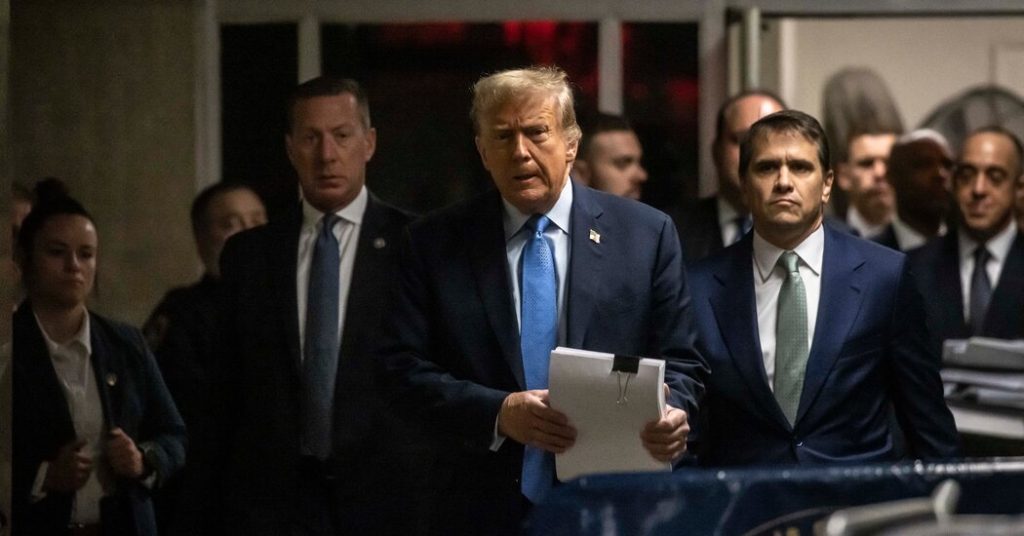The Supreme Court hearing on former President Donald J. Trump’s claims of executive immunity could potentially help him in two ways, as the justices signaled that some allegations could be removed from the federal indictment charging him with attempting to overturn the 2020 election. This process of determining which accusations to keep could take several months, effectively delaying any potential trial until after the upcoming election. However, Justice Amy Coney Barrett suggested a way for prosecutors to avoid this lengthy process by maneuvering around it themselves. This hearing raised practical questions about how Mr. Trump’s criminal case could proceed following the court’s decision.
The court’s ruling on the question of granting presidents immunity from criminal prosecution will directly affect the election interference case against Mr. Trump. The indictment detailed numerous steps Mr. Trump took to reverse the election results in key states, including pressuring state lawmakers and seeking validation from the Justice Department. Mr. Trump’s defense of executive immunity was initially raised as his first defense against these charges, arguing that he was acting as president rather than a private candidate. The conservative justices seemed interested in the idea of presidents having some form of immunity, suggesting that some specific allegations in the indictment may need to be removed.
During the hearing, discussions arose on whether certain actions by Mr. Trump were official or private. Mr. Trump’s lawyer argued that actions such as personnel decisions or requesting hearings were official presidential duties meant to defend the integrity of the election. However, actions involving personal lawyers and creating fake slates of electors were deemed private and open to prosecution. This distinction between official and private acts could become a focal point in the decision-making process of which charges to retain in the indictment.
The potential for a lengthy process of separating official acts from private ones could significantly delay the trial, possibly pushing it into 2025. While the conservative justices did not seem eager to hasten the case towards trial, Justice Barrett acknowledged concerns over timing expressed by the special counsel. She presented a surprising suggestion to speed up the case by allowing the special counsel to edit the indictment, proceeding based on private conduct and dropping official conduct. This proposal could streamline the process and potentially move the case forward more efficiently.
Overall, the hearing brought forward both constitutional and practical considerations regarding the criminal case against Mr. Trump. The potential implications of the Supreme Court’s ruling on executive immunity could impact the election interference case significantly. With a focus on distinguishing official acts from private ones, the court may ultimately determine which specific allegations remain in the indictment. The suggestion to expedite the process by focusing on private conduct could offer a way to move the case forward more swiftly, despite potential delays in the trial timeline. As the court deliberates on these complex legal issues, the outcome will have lasting implications for Mr. Trump’s criminal case and the broader questions of presidential immunity from prosecution.


